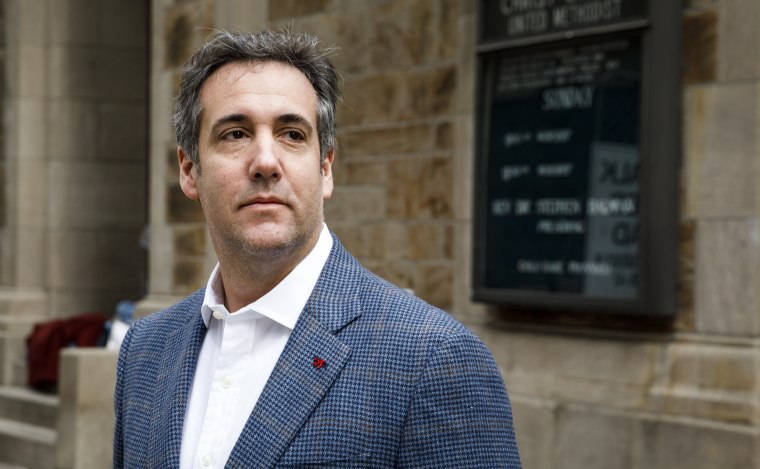Michael Cohen, Donald Trump's controversial "fixer," is in an unfortunate spot. Last week, new details came into sharper focus showing that the New York attorney received undisclosed lobbying payments -- through a shell company used to pay hush money to a porn star -- from corporate giants hoping to influence his client in the Oval Office.
The Wall Street Journal took a deeper dive into this story over the weekend, pointing to some companies Cohen approached that we hadn't heard about before.
When Michael Cohen came knocking after the 2016 election, touting himself as the president's lawyer, a man who could decipher the new administration, Ford Motor Co. said no. So did Uber Technologies Inc.He managed to notch AT&T Inc. and Novartis AG. And Squire Patton Boggs, a law and lobbying firm, hired him for a sizable fee -- though he felt it wasn't enough.Mr. Cohen talked to associates about building a huge practice. He mused about approaching foreign governments and foreign firms. But a broad review of his Washington dealings since they first surfaced last week shows his efforts were scattershot and met only with mixed success -- both for Mr. Cohen and his clients.
The WSJ report described Cohen's "blunt" pitch to prospective clients: they should fire their existing advisers and replace them with him. “I have the best relationship with the president on the outside, and you need to hire me,” Cohen reportedly told them.
The result was a rather brutal fiasco for practically everyone involved. Several of Cohen's former clients have had chats with Special Counsel Robert Mueller's investigators, and Cohen himself is, according to one judge, "likely" to be indicted.
There's no shortage of questions related to Cohen's clients, his finances, other potential LLCs, what investigators were looking for when they raided his home and office, and what role Donald Trump may or may not have had in this mess.
But there's one question that shouldn't get lost in the shuffle: is there a point at which this becomes a problem for the Republican National Committee?
In April 2017, the RNC issued a press release introducing the members of its finance team. Casino mogul Steve Wynn would serve as the Republican National Committee's finance chairman, while Elliott Broidy and Michael Cohen were among a small handful of Republicans who would serve as national deputy finance chairmen.
Wynn was forced to resign from the RNC earlier this year following sexual misconduct allegations. (The RNC refused to return his money.)
Broidy, who's at the center of multiple, ongoing controversies, also resigned in the wake of an unrelated sex scandal.
And then there's Cohen, who struck controversial business deals through his shell company during his tenure as a national deputy finance chair of the RNC -- a post that he apparently still holds. (There's been no announcement about the lawyer stepping down from his position with the Republican Party.)
Is there a point at which this formal relationship becomes untenable? Or more to the point, how much more would it take for the RNC to show Cohen the door?
